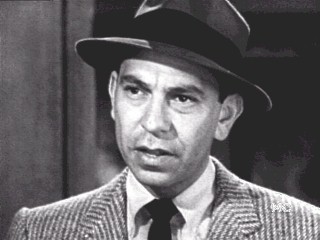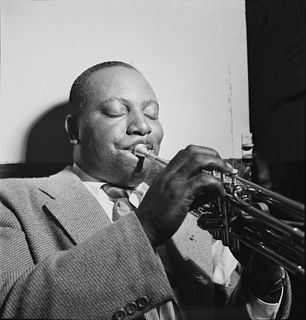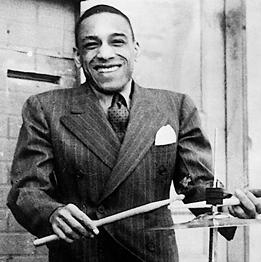Nathaniel Edward Story (August 8, 1904 in Oak Station, Kentucky – November 21, 1968 in Evansville, Indiana) was an American jazz trombonist.

Evansville is a city and the county seat of Vanderburgh County, Indiana, United States. The population was 117,429 at the 2010 census, making it the state's third-most populous city after Indianapolis and Fort Wayne, the largest city in Southern Indiana, and the 232nd-most populous city in the United States. It is the commercial, medical, and cultural hub of Southwestern Indiana and the Illinois-Indiana-Kentucky tri-state area, home to over 911,000 people. The 38th parallel crosses the north side of the city and is marked on Interstate 69.
Jazz is a music genre that originated in the African-American communities of New Orleans, United States, in the late 19th and early 20th centuries, and developed from roots in blues and ragtime. Jazz is seen by many as "America's classical music". Since the 1920s Jazz Age, jazz has become recognized as a major form of musical expression. It then emerged in the form of independent traditional and popular musical styles, all linked by the common bonds of African-American and European-American musical parentage with a performance orientation. Jazz is characterized by swing and blue notes, call and response vocals, polyrhythms and improvisation. Jazz has roots in West African cultural and musical expression, and in African-American music traditions including blues and ragtime, as well as European military band music. Intellectuals around the world have hailed jazz as "one of America's original art forms".
Story played on riverboats on the Mississippi with Fate Marable and Floyd Campbell in the 1920s, and played with the Jones and Collins Astoria Hot Eight in 1928. He moved to New York City in the 1930s, working with Luis Russell (1934), Sam Wooding (1934), and Chick Webb (1936–39). After Webb's death he remained in the orchestra under the direction of Ella Fitzgerald, but left in 1940. Early in the 1940s he played with Andy Kirk and Lucky Millinder, but went into semi-retirement after this, though he performed occasionally into the 1960s.

A riverboat is a watercraft designed for inland navigation on lakes, rivers, and artificial waterways. They are generally equipped and outfitted as work boats in one of the carrying trades, for freight or people transport, including luxury units constructed for entertainment enterprises, such as lake or harbour tour boats. As larger water craft, virtually all riverboats are especially designed and constructed, or alternatively, constructed with special-purpose features that optimizes them as riverine or lake service craft, for instance, dredgers, survey boats, fisheries management craft, fireboats and law enforcement patrol craft.

The Mississippi River is the second-longest river and chief river of the second-largest drainage system on the North American continent, second only to the Hudson Bay drainage system. Its source is Lake Itasca in northern Minnesota and it flows generally south for 2,320 miles (3,730 km) to the Mississippi River Delta in the Gulf of Mexico. With its many tributaries, the Mississippi's watershed drains all or parts of 32 U.S. states and two Canadian provinces between the Rocky and Appalachian mountains. The main stem is entirely within the United States; the total drainage basin is 1,151,000 sq mi (2,980,000 km2), of which only about one percent is in Canada. The Mississippi ranks as the fourth-longest and fifteenth-largest river by discharge in the world. The river either borders or passes through the states of Minnesota, Wisconsin, Iowa, Illinois, Missouri, Kentucky, Tennessee, Arkansas, Mississippi, and Louisiana.
Fate Marable was an American jazz pianist and bandleader.










